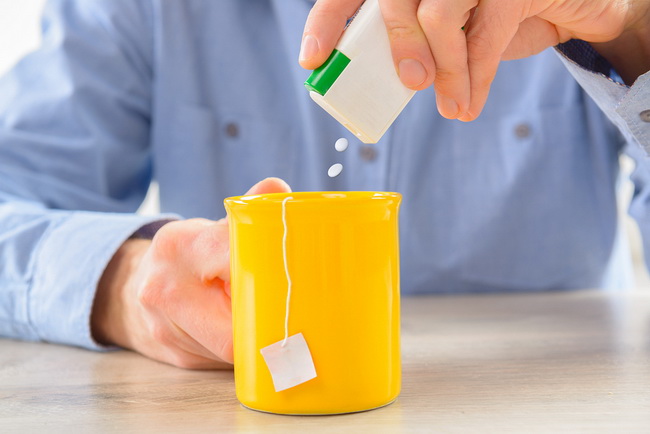- Make It Yourself Lavender Heart-Shaped Bath Bombs!
- 20 Things You Never Knew About “Down There”
- 12 Best Foods For Those Suffering From Arthritis Pain
- 12 Personal Hygiene Mistakes Almost Everyone Makes (Mom Never Told You About #4!)
- 15 Medicinal Plants And Herbs From The Cherokee People
- 12 Mind-Blowing Benefits Of Drinking Coconut Water During Pregnancy
- 12 Outstanding Winter Foods That Won’t Fatten You Up Like A Christmas Turkey
The Little Yellow Packet of Death

Photo credit: bigstock
Splenda has gone from a “safe” status to a “caution” status officially. Not from the FDA, however, but from the Center for Science in the Public Interest (CSPI). The FDA approved sucralose (Splenda) back in 1998. It’s undergone a lot of scrutiny since then and the findings have not been pretty.
Sucralose was actually discovered when researchers were creating a new type of insecticide. It’s true. Why did they introduce sucralose to a market that already had numerous artificial sweeteners? Because the public was becoming aware that these other chemical sweeteners were dangerous. By the way, don’t confuse sucralose with your ordinary table sugar, sucrose.
An in-depth scientific review of sucralose showed that it has a long list of health concerns including DNA damage, a greater cancer risk when used in cooking, and toxicity. This study was published in the Journal of Toxicology and Environmental Health. Like aspartame, the side effects most reported from consumers include:
- Seizures
- Migraines
- Dizziness
- Gastrointestinal issues
- Blurry vision
- Increases in blood sugar levels
- Weight gain
- Allergic reactions
When heated, sucralose releases a toxin called chloropropanols, which is in a class of dangerous chemicals called dioxins. The makers of Splenda insist that it is stable when used for cooking, but the findings of this study disprove their claims. Many artificial sweeteners break down when exposed to higher temperatures, such as aspartame, and cannot be used for baking. Apparently the same is true of sucralose, except that the manufacturers won’t take responsibility for that claim.
Continue to Page 2

































J J
Dec 10, 2014 at 5:07 pm
When I took my son to the orthodontist recently, his dentist was concerned about the affect that sugar may be having on his teeth, which are hard to clean because of the braces. I told him that I had concerns about artificial sweeteners, but he told me that the choice that we should make involved no sugar for the sake of my son’s teeth. My son doesn’t drink many beverages that have sugar or artificial sweeteners, but it appears that he should have none. It appears that there is no panacea, in spite of what the manufacturers say. I appreciate having this information.